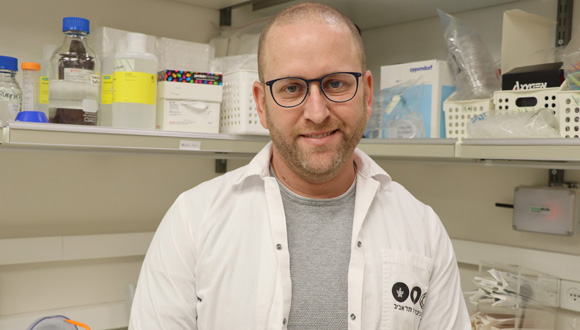Researchers Uncover New Factors Linked to Williams Syndrome
Findings may contribute to development of treatments to enable normal expression of genes essential for brain development in people suffering from the syndrome
Findings may contribute to development of treatments to enable normal expression of genes essential for brain development in people suffering from the syndrome
Williams syndrome is a relatively rare, multisystem genetic syndrome that causes disorders in brain development. A new study by the Tel Aviv University and Hebrew University found that abnormal processes lead to disruption in the expression of genes essential for brain development in people suffering from the syndrome. The researchers believe their findings may contribute to the future development of targeted treatments that will enable normal expression of the affected genes identified in the research.
Looking Beyond Chromosome 7
The research was led by Dr. Boaz Barak from the School of Psychological Sciences and the Sagol School of Neuroscience at Tel Aviv University and Dr. Asaf Marco from the Faculty of Agriculture, Food and Environment of the Hebrew University. Also participating in the research were Dr. Sari Trangle, Mr. Gilad Levy and Ms. Ela Bar from Dr. Barak's laboratory, and Dr. Tali Rosenberg and Ms. Hadar Parnas from Dr. Marco's laboratory. The research findings were published in the prestigious journal Molecular Psychiatry from the Nature publishing group.
"We wanted to examine whether the Williams Syndrome is also characterized by defects in the genomes contained in brain cells which prevent the proper expression of essential genes." Dr. Boaz Barak
Dr. Barak: “Williams syndrome is a rare, multisystem genetic syndrome that includes disorders in brain development that lead to heightened social interactions, mental retardation, and other characteristic features. Past research has revealed that twenty-five genes are missing from the DNA on chromosome number seven of people with Williams syndrome, and the study of the syndrome to date has mainly focused on those missing genes and their functions."
"We wanted to examine whether the syndrome is also characterized by defects in the genomes contained in brain cells which prevent the proper expression of essential genes. Specifically, we asked: ‘Is it possible that certain genes are not expressed properly in the brains of people with Williams syndrome due to the phenomenon of methylation - when a molecule known as a 'methyl group' is located on a certain gene that is present in the genome, preventing it from expressing itself properly?".
To illustrate the phenomenon of the missing genes, Dr. Barak took an instruction book in which some of the pages were torn out. As a result of the missing pages, anyone following the instructions would make mistakes. Similarly, hiding some of the letters in the pages left in the book with a black marker would result in instructions being corrupted, just like methylation on an existing gene disrupts its expression.
Methylation is in many cases a normal mechanism in the cells of the body, as its role is to prevent expression of certain genes when appropriate. However, when there are disruptions in the correct application of methylation, the abnormal expression of the genes may lead to impairments in cell function, and subsequently cause damage to various organs, including to normal brain development.

Dr. Boaz Barak from the School of Psychological Sciences and the Sagol School of Neuroscience at Tel Aviv University
Uncovering New Factors
The researchers examined human brain tissues taken from adults with and without Williams syndrome who died of causes unrelated to the syndrome and donated their brains to science.
“We focused on samples from the frontal lobe, the area of the brain that is responsible for brain functions such as cognition and decision-making," Dr. Barak explained. "In a previous study, we located in this area damage to the characteristics of the nerve cells and the cells that support nerve cell activity in people with Williams syndrome. In this study, we examined all the genes in all the cells of the frontal lobe to determine whether there are genes in people with Williams syndrome that have undergone abnormal methylation processes, i.e., increased or decreased gene silencing compared to a brain with typical development.”
"We uncovered significant information about the defective expression of genes in people with Williams syndrome. While these genes are fully present in the genome of the brain cells, until now it was not known that these abnormally regulated genes are involved in the syndrome." Dr. Asaf Marco.
The researchers found that indeed in people with Williams syndrome abnormal methylation does exist in this area of the brain, resulting in disruption of the normal expression of many genes related to the normal development of the brain's neural functions, such as regulation of social behavior (people with Williams syndrome are known to be overly friendly), cognition, plasticity of the brain, and cell survival.
“We uncovered significant information about the defective expression of genes in people with Williams syndrome. While these genes are fully present in the genome of the brain cells, until now it was not known that these abnormally regulated genes are involved in the syndrome," says Dr. Marco.
"Building on our findings, it will be possible to focus future efforts on the development of targeted treatments that will reach the disrupted sites that we identified in the study in order to 'correct' the defective expressions." Dr. Boaz Barak
Next Step: Target Disrupted Sites
"In addition, one of our main findings is that the disruptions in methylation do not have to appear near the gene whose function is impaired, and sometimes the disruptions are located far away from it. This information is critical because it allows us to better understand the spatial organization of DNA and its effect on gene control."
He adds that, "since we know of enzymes that are able to remove or add methyl molecules, the next challenge will be to precisely direct those enzymes to the disrupted sites identified in our research, with the aim of allowing the genes to be properly expressed.”
Dr. Barak concludes: "Our research revealed new factors related to the disabilities that characterize Williams syndrome. Instead of focusing on the effects of the missing gene, as has been done until now, we shed light on many more genes that are expressed in a defective manner. Building on our findings, it will be possible to focus future efforts on the development of targeted treatments that will reach the disrupted sites that we identified in the study in order to 'correct' the defective expressions.”






